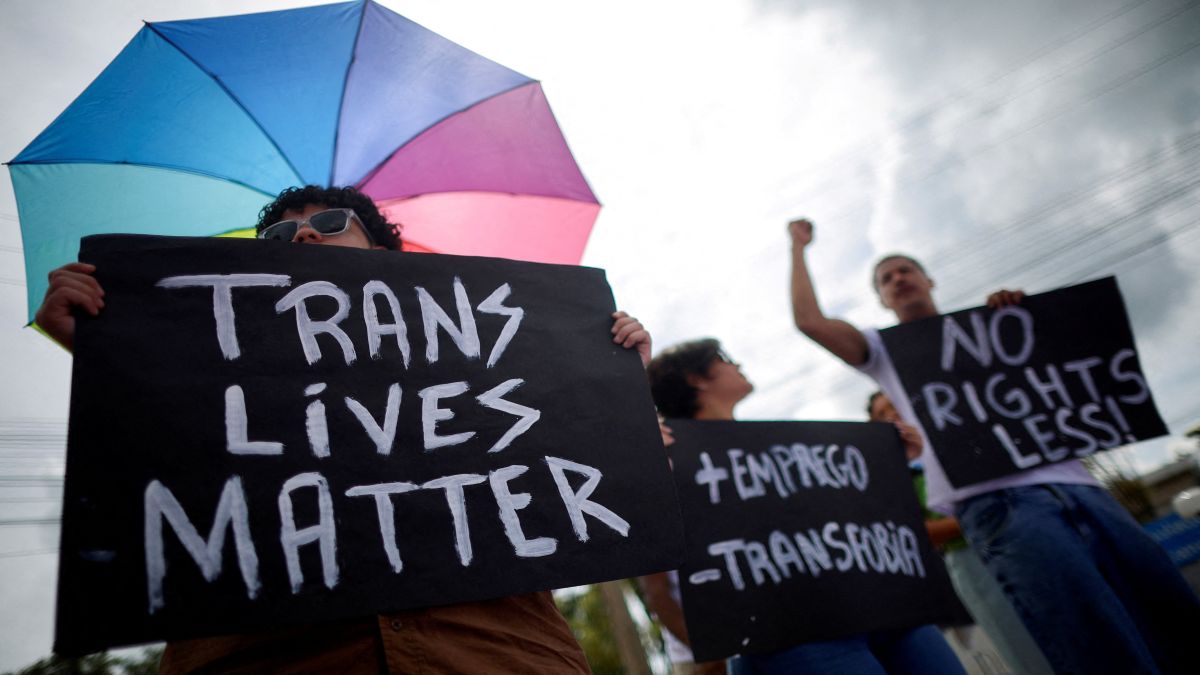Since returning to office, United States President Donald Trump has moved swiftly to dismantle transgender rights through a series of executive orders that affect identity recognition, healthcare, military service, incarceration policies, and public education.
Just recently on Wednesday, during a ceremony where he signed an executive order prohibiting transgender athletes from competing in women’s sports, Trump stated that his administration is urging the IOC to “change everything having to do with the Olympics and having to do with this absolutely ridiculous subject" before the 2028 Summer Games in Los Angeles.
These measures mark a dramatic reversal from the previous administration’s approach and have drawn sharp criticism from civil rights organisations, medical professionals, and LGBTQ+ advocates.
Defining gender as strictly Male or Female
One of Trump’s earliest and most sweeping orders established a binary definition of gender, recognising only male and female as immutable biological categories. The stated justification is to “protect women” from the “eradication of biological reality.”
This order impacts federal policies, requiring all agencies to conform to this definition and discontinue the use of taxpayer funds for “gender ideology.”
Federal agencies moved quickly to comply. The US Equal Employment Opportunity Commission (EEOC) removed identity pronouns from employee profiles and disallowed nonbinary “X” gender markers for those filing discrimination claims. Acting EEOC Chair Andrea Lucas stated, “Biology is not bigotry. Biological sex is real, and it matters.”
Government websites have been scrubbed of information relating to transgender inclusivity.
The Bureau of Prisons stopped reporting the number of transgender individuals in custody, while the Centers for Disease Control and Prevention (CDC) removed guidance on creating supportive school environments for transgender and nonbinary students.
Restrictions on identity documentation
Trump’s executive order also instructed federal agencies to stop issuing passports with gender markers that do not align with the newly defined binary standard.
The US State Department promptly removed the option for an “X” gender marker on passport applications and ceased granting gender marker changes between male and female for transgender individuals.
The American Civil Liberties Union (ACLU) has signalled potential legal action in response to these changes.
Transgender inmates moved to men’s prisons
The administration also ordered transgender women in federal custody to be relocated to men’s prisons. Reports from legal advocates indicate that some transfers have already taken place.
“When you have the nation’s commander-in-chief demonising transgender people, it certainly sends a signal to all Americans,” Sarah Warbelow, legal director at the Human Rights Campaign was quoted by AP.
There have already been lawsuits challenging this policy. In Massachusetts, a federal judge ruled that a transgender woman must remain in a women’s prison and continue receiving gender-affirming healthcare while litigation continues.
Reinstating the ban on transgender military service
Trump has also moved to reinstate a ban on transgender service members in the military, instructing US Defence Secretary Pete Hegseth to draft a policy by late March.
The executive order claims that being transgender “conflicts with a soldier’s commitment to an honourable, truthful, and disciplined lifestyle, even in one’s personal life.”
A similar attempt to bar transgender individuals from military service was blocked by the courts during Trump’s first term, and a new legal battle is expected as active service members have already filed lawsuits challenging the directive.
Defunding gender-affirming healthcare
Another executive order calls for the elimination of federal funding for gender-affirming medical care for transgender youth under the age of 19.
The affected treatments include puberty blockers, hormone therapy, and gender-affirming surgery, though such surgeries for minors are rare. The order prohibits Medicaid and TRICARE, the healthcare program for military families, from covering these treatments.
Additionally, the order encourages Congress to pass legislation banning gender-affirming care nationwide. Although such a law would require congressional approval, 26 states have already implemented bans or restrictions on transgender healthcare for minors.
Some hospitals have temporarily halted gender-affirming treatments for minors while they assess the executive order’s implications.
Curtailing transgender rights in schools
A separate executive order addresses transgender student rights in schools, directing the Department of Education to create policies preventing the use of federal funds for supporting students who socially transition.
The order would bar schools from requiring staff to use a student’s chosen name and pronouns if they do not align with their sex assigned at birth. It also prohibits teaching that gender is fluid, part of a broader effort to combat what Trump refers to as “radical indoctrination.”
Many states and school districts have passed measures protecting transgender students from being “deadnamed” — a practice widely considered offensive and harmful—but this new federal order could pressure schools to reverse such policies.
Rollback of workplace protections
Federal agencies have also been instructed to review job descriptions and terminate employees whose roles involve “promoting gender ideology.” In addition, the Trump administration plans to limit the scope of the 2020 US Supreme Court ruling that extended civil rights protections to transgender individuals under existing sex discrimination laws.
The goal is to curtail the interpretation of “sex” as including gender identity, which could weaken employment protections for transgender workers.
The Department of Government Efficiency (DOGE) has announced that 85 Diversity, Equity, Inclusion, and Accessibility-related contracts — totalling approximately $1 billion — have been cancelked across multiple federal agencies.
While the administration has not provided a full breakdown of these contracts, advocates fear this move will severely impact workplace protections for LGBTQ+ individuals in federal employment.
The ACLU and the Human Rights Campaign are leading efforts to challenge these policies in court, arguing they violate constitutional protections and anti-discrimination laws.
With inputs from agencies


)

)
)
)
)
)
)
)
)



